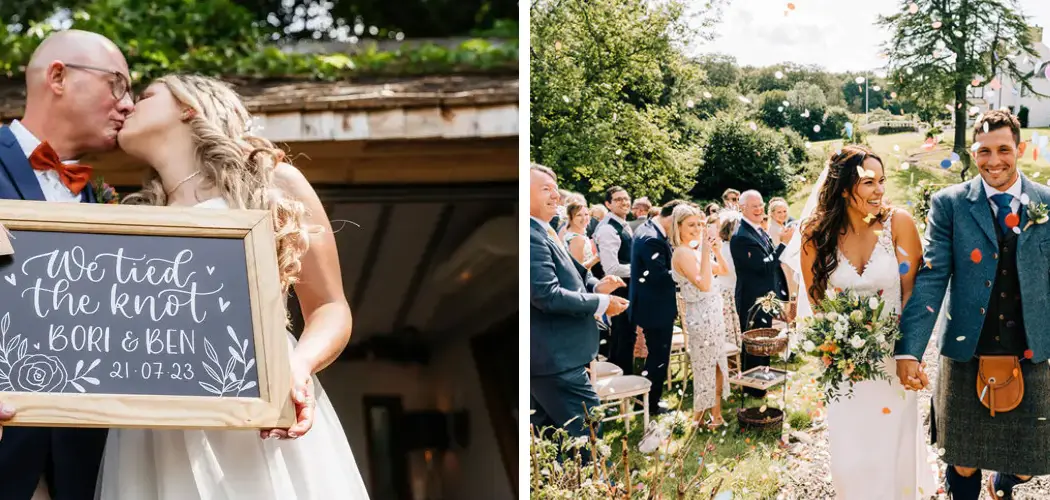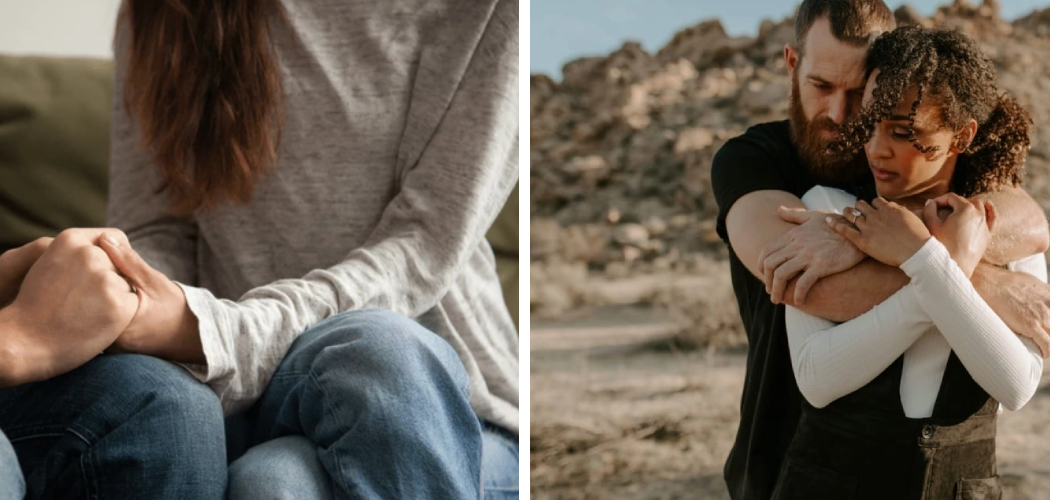Dealing with a broken relationship can be tough and emotional. But, with the right steps and a real effort to fix things, you can heal and make your bond stronger. This guide offers expert advice and practical tips to help you on your journey to mend your relationship.

A serene landscape depicting two intertwined trees with vibrant blossoms, symbolizing growth and connection, surrounded by gentle sunlight filtering through leaves, with a soft breeze creating ripples on a calm lake nearby, representing harmony and healing in nature.
- How to Fix a Broken Relationship?
- Rebuilding Trust and Intimacy
- Improving Communication Skills
- Conflict Resolution Strategies
- Rekindling the Romantic Connection
- The Power of Forgiveness
- Addressing Past Wounds and Resentments
- Cultivating Patience and Understanding
- Seeking Professional Counseling
- Frequently Asked Questions
Key Takeaways
- Identify the root causes of the relationship breakdown to address the underlying issues
- Seek professional guidance from relationship counselors to navigate the healing process
- Rebuild trust and intimacy through open communication, empathy, and a willingness to compromise
- Develop effective conflict resolution skills to handle disagreements constructively
- Rekindle the romantic connection by prioritizing quality time and shared experiences
- Practice forgiveness and let go of resentment to move forward
- Cultivate patience, understanding, and realistic expectations during the healing journey
How to Fix a Broken Relationship?
Fixing a broken relationship is tough, but it’s doable. The first step is to understand the root causes of the problem.
Understanding the Root Causes
Think about the behaviors, conflicts, or communication issues that caused the problem. Knowing these issues is key to fixing them and avoiding them in the future.
- Look at your own actions and how they might have hurt the relationship.
- Talk to your partner to understand the problems and their causes together.
- Find any conflicts or communication problems that have caused tension.
Seeking Professional Guidance
Getting help from a relationship therapist or counselor can be very helpful. They can help you and your partner find the problems and make a plan to fix them.
Remember, relationship counseling shows you’re serious about fixing your relationship. It’s a sign of your commitment to a better future together.
A pair of intertwined hands gently repairing a cracked heart, surrounded by blooming flowers and soft, warm light, symbolizing renewal and healing.
“The journey of a thousand miles begins with a single step. Embrace the opportunity to transform your relationship and create the future you both desire.”
Rebuilding Trust and Intimacy
Trust is the base of a strong relationship. When trust is broken, it’s important to work on rebuilding trust and emotional intimacy. This journey needs patience, openness, and a strong commitment from both sides.
Being transparent is key to rebuilding trust. Share your thoughts, feelings, and actions openly. Keep talking and follow through on your words. Saying sorry for past mistakes can help your partner feel safe again.
To foster emotional intimacy, do things that bring you closer. Try new things together, have regular date nights, or just talk deeply. Physical closeness can also help rebuild emotional connection when it’s right.
“The greatest gift you can give another is the purity of your attention.” – Richard Moss
Rebuilding trust and intimacy is a long journey. It requires time, effort, and a strong commitment from both. With patience, kindness, and a willingness to be open, you can build a strong and fulfilling relationship.
A pair of intertwined hands gently holding a fragile flower, symbolizing the delicate process of rebuilding trust, with soft sunlight filtering through a lush green garden in the background, creating a serene and hopeful atmosphere.
| Tips for Rebuilding Trust | Tips for Rebuilding Intimacy |
| Be transparent and accountableKeep your promisesAcknowledge and apologize for past hurtsCommunicate openly and honestly | Engage in shared experiences and activitiesSet aside dedicated time for meaningful conversationsExplore physical intimacy when both partners are readyPractice vulnerability and emotional openness |
Improving Communication Skills
Good communication is key to a healthy relationship. To mend a broken bond, improving how you talk to each other is crucial. Focus on active listening and expressing emotions well.
Active Listening Techniques
Active listening is more than just hearing what your partner says. It means really paying attention, asking questions, and showing you get it. This shows you care and helps you both understand each other better. Here are some tips for active listening:
- Make eye contact to show your partner you’re engaged.
- Paraphrase what they’ve said to confirm your comprehension.
- Ask open-ended questions to dig deeper into their perspective.
- Avoid interrupting or formulating your response while they’re speaking.
Expressing Emotions Effectively
To rebuild trust and closeness, you must be open about your feelings. But do it in a way that’s clear and respectful. Use “I” statements to share your feelings and needs, not to blame. This makes sure both of you feel heard and valued.
Here’s how to express your emotions well:
- Use “I feel” statements, like “I feel hurt when…” or “I need more quality time together.”
- Avoid accusatory “you” statements that can make your partner defensive.
- Share your feelings calmly and avoid turning it into a fight.
- Encourage your partner to open up too, making a safe space for talking.
By getting better at listening and expressing feelings, you and your partner can start to mend your relationship.
Two intertwined hands gently holding a glowing heart, surrounded by a soft aura of light, symbolizing connection and understanding, with a serene background of pastel colors blending harmoniously.
“The greatest communication skill is the willingness to listen.” – Larry King
Conflict Resolution Strategies
Conflicts are a normal part of any relationship. How you handle them can greatly impact your bond. It’s important to solve problems, not just argue.
Identifying Core Issues
Understanding the real reasons behind conflicts is crucial. Often, the true issues are hidden beneath the surface. By exploring your feelings, values, and needs, you can find the root cause.
This approach helps in finding lasting solutions, not just quick fixes.
Compromise and Negotiation
Effective conflict resolution requires compromise and negotiation. Be open-minded and listen to your partner’s views. Aim to find solutions that satisfy both of you, not just one.
| Conflict Resolution Strategies | Compromise and Negotiation Techniques |
| Identify the core issuesUnderstand your own emotions and needsListen actively to your partner’s perspectiveApproach the conflict with empathy and compassion | Actively listen to your partner’s concernsIdentify shared goals and areas of agreementPropose mutually beneficial solutionsBe willing to compromise and find a middle ground |
The goal of conflict resolution is not to “win” but to find a way forward. By working together and focusing on the core issues, you can overcome even the toughest challenges. This will strengthen your relationship.
A serene landscape depicting two paths converging at a peaceful river, symbolizing unity; gentle sunlight filtering through lush trees, with flowers blooming along the banks, representing hope and healing; soft ripples in the water, reflecting harmony and calmness.
Rekindling the Romantic Connection
In long-term relationships, the spark can fade. But, with effort and creativity, you can rekindle the romance. Rediscovering what first drew you together and nurturing intimacy are key to reviving passion.
Plan regular date nights to break from daily routines. Try new things like a new restaurant or a cooking class. These adventures can strengthen your bond and create new memories.
Showing love and appreciation is vital. Write a love letter, surprise with a gift, or simply say how much you admire your partner. Small gestures can reignite the romantic connection and build intimacy.
“The greatest romance is not found in the movies, but in the simple daily acts of love and care we show to our partners.” – Unknown
Physical intimacy is also crucial. Make time for cuddling, kissing, and making love. Trying new ways to show physical desire can deepen your emotional and romantic connection.
The journey to rekindle romance is ongoing. Be patient, communicate openly, and keep working on love and intimacy. With effort and creativity, you can rediscover the spark that first ignited your love.
| Strategies for Rekindling Romance | Benefits |
| Plan regular date nightsExplore new experiences togetherExpress love and appreciationNurture physical intimacy | Strengthens emotional connectionSparks excitement and noveltyFosters a sense of gratitude and appreciationEnhances physical and sexual intimacy |
The Power of Forgiveness
Forgiveness is a powerful act that can heal a broken relationship. It helps you let go of resentment and past hurts. This way, you can start anew with your partner.
Letting Go of Resentment
Resentment can make a relationship heavy. First, acknowledge the pain and frustration. Think about what made you resentful and decide to forgive your partner. Forgiving doesn’t mean you agree with their actions. It means you’re moving past the negativity.
Rebuilding Emotional Intimacy
After forgiving, start rebuilding emotional intimacy. Talk openly and honestly about your feelings and needs. This creates a safe space for vulnerability. It helps strengthen your emotional bond and understanding of each other.
“Forgiveness is not an occasional act, it is a constant attitude.” – Martin Luther King Jr.
Forgiveness can change a broken relationship. By letting go of resentment and working on rebuilding emotional intimacy, you can build a stronger bond with your partner.
| Benefits of Forgiveness | Challenges of Forgiveness |
| Reduces stress and improves physical healthEnhances emotional well-being and self-esteemStrengthens relationships and promotes healingHelps to move forward and let go of the past | Requires humility and vulnerabilityCan be challenging to let go of deep-rooted resentmentRequires time and consistent effortMay be difficult to trust again after betrayal |
Addressing Past Wounds and Resentments
Unresolved past issues and resentments can weigh down your relationship. It’s important to work through these problems, either alone or with a counselor’s help.
Begin by acknowledging the pain you’ve both felt. Validate each other’s feelings and perspectives, making a safe space to talk about the past. This can be the first step towards healing.
“The path to forgiveness and emotional healing often begins with empathy and a willingness to listen to one another’s stories.”
When exploring resentment, identify the specific hurts and betrayals that need attention. Find ways to process emotions, release anger, and let go of the resentment that’s holding you back.
With patience and commitment, you can overcome past challenges. Rebuild the emotional intimacy that’s key for a thriving relationship. By addressing past wounds, you open the door to a brighter future with mutual understanding and trust.
Cultivating Patience and Understanding
Fixing a broken relationship needs a lot of patience and a real desire to understand your partner. It’s key to start the healing with an open mind and a caring heart. Remember, fixing trust and closeness takes time and hard work.
Empathy and Compassion
Building empathy and compassion can change how you face relationship problems. Trying to see things from your partner’s view helps you understand their feelings better. This understanding leads to more compassion, helping you both handle conflicts better.
Managing Expectations
It’s important to manage your expectations when trying to fix a relationship. The journey won’t always go smoothly, and you’ll face obstacles. But, keep moving forward with patience and determination, even when things are tough.
“The greatest gift you can give another is the purity of your attention.” – Richard Moss
By focusing on patience, understanding, empathy, and compassion, you’ll help your relationship heal and grow. Remember, fixing trust and closeness is a long journey. But with the right attitude, you can get through it and come out even stronger.
Seeking Professional Counseling
If you and your partner are having trouble on your own, getting help from a professional might be a good idea. A relationship counselor or therapist can offer a fresh view. They help you learn how to talk better and solve problems together.
Seeing a relationship counselor can really help. It lets you and your partner tackle big issues and find out what’s causing the fights. A professional can help you understand each other better and work towards fixing your relationship.
Don’t be afraid to ask for help. Counseling can change your relationship for the better. It gives you the tools to face challenges, grow closer, and build a stronger bond. Think about getting professional help to make your relationship even better.
Frequently Asked Questions
What are the root causes of a broken relationship?
Finding out why your relationship broke up is the first step to fixing it. Common reasons include bad communication, unresolved fights, trust issues, cheating, lack of closeness, and unmet emotional needs.
When should I seek professional guidance for my relationship?
If you and your partner can’t fix things on your own, get help from a relationship counselor. They offer a fresh view, help with talking and solving fights, and support you in healing and rebuilding.
How can I rebuild trust and intimacy in my relationship?
Trust is key in any good relationship. To regain trust, be open, keep promises, and truly say sorry for past mistakes. To get closer, do things that make you feel connected and open.
What are some effective communication techniques for relationship repair?
Good communication is crucial for fixing a broken relationship. Listen fully to your partner, ask questions, and show you understand. Share your feelings and needs clearly and kindly, asking your partner to do the same.
How can I resolve conflicts in a healthy way?
Dealing with fights in a good way is important. Understand the real reasons behind your fights, not just the surface stuff. Work on finding ways to compromise and negotiate, so both sides feel heard and valued.
What can I do to rekindle the romantic connection in my relationship?
To bring back the romance, do things that make you feel close and loved. Plan special dates, try new things together, and show your love and thanks. Remember what first brought you together and work on keeping that connection strong.
How can the power of forgiveness help heal my relationship?
Forgiveness is a strong tool for fixing a broken relationship. Let go of anger and past hurts, and focus on moving forward. Forgiveness helps you rebuild closeness and makes your bond stronger.
How do I address past wounds and resentments in my relationship?
Unresolved past issues and resentments can hold you back. Take time to deal with these emotional wounds, alone or with a counselor. Acknowledge the pain, validate each other’s feelings, and find ways to heal and move on together.
How can I cultivate patience and understanding in my relationship?
Fixing a broken relationship takes patience and understanding. Be empathetic and compassionate to handle challenges better. Be realistic about the time and effort needed to rebuild trust and closeness.




